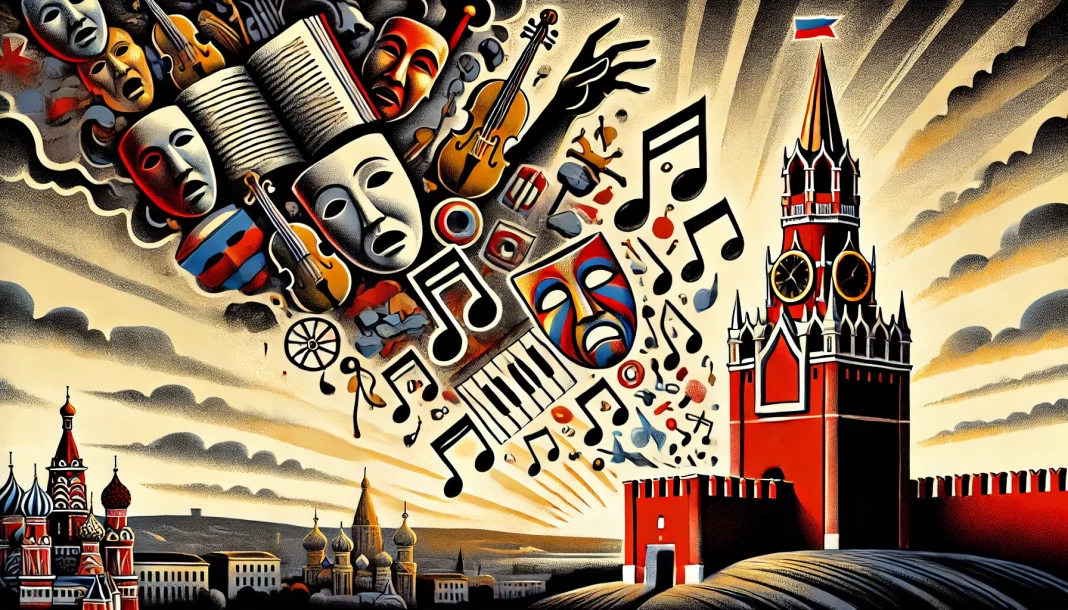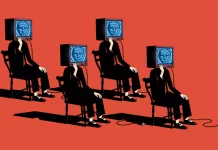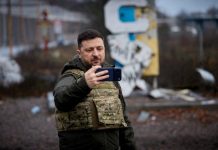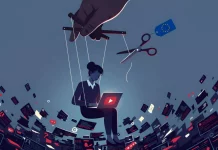The sad anniversary of Russia’s full-scale invasion of Ukraine will soon pass. Ukrainian cities, villages and, above all, the people, have been and continue to be subjected to horrific attacks from the entire arsenal that the Kremlin has been amassing for decades. It has even reached the limits of the absurd, as in the case of “microelement ballistics.” Yes, Moscow, unfortunately, has something to kill with, and the West indirectly helps it do so by buying oil and gas and sometimes turning a blind eye to circumventing sanctions, leading to an increase in the production of Russian, Iranian and North Korean weapons. But culture is proving to be no less deadly a tool, which Russian satraps have skillfully used since the 19th century. Its ambassadors can sometimes be more effective (and therefore more dangerous) than the Russian paratroopers Putin sent to storm the Donbas.
Let’s remember that even today, after the atrocities in Bucha and Mariupol, the shooting of unarmed soldiers and the torture of Ukrainian prisoners of war, Russian culture is still being talked about in the West: “Yes, all this is terrible, but can we really erase the great Russian literature with Pushkin and Tolstoy? Do we really have to give up the great Russian musicians and composers, such as Bashmet and Tchaikovsky? How can we imagine a civilized world without the masterpieces of Russian cinema? After all, they are the messengers of all that is human, humane and luminous.” It may seem that way, but in reality all these “cultural merchants” are an effective means of the Kremlin’s poisonous propaganda, and the authors of “Onegin” and “War and Peace” have become the unshakable foundation of imperialism, arrogance and contempt for others. In this way, they gave rise to Russia’s bloodthirsty politicians and their society of many millions, as they have always promoted the greatness and superiority of “great and holy Russia.”
After February 24, 2022. The West temporarily refused to accept anything Russian at festivals, concert halls and cinemas. However, this condition passed quickly. The farther we go, the clearer we see in democratic countries how Russian manipulation, personified by cultural figures, is penetrating deeper and deeper. Let’s recall just a few recent scandalous cases. In September 2024, two respected film platforms, the Venice Film Festival and the Toronto International Film Festival, screened Russian Anastasia Trofimova’s film Russians at War. The director, who worked for the Kremlin propaganda channel Russia Today for many years, spent several months among Russian soldiers in occupied Ukrainian territory. Her film shows the lives and suffering of “ordinary people,” but not a word about their crimes, which we are witnessing, including in the West.
In mid-March of this year, a traditional festival of Russian cinema was held in Paris and Taverny, where Moscow organizers presented “Shadows of Forgotten Ancestors” as the work of “Russian director” Sergei Parajanov. Not only did the Soviet (and therefore Russian) regime oppress this artist, who had never lived in Russia, throughout his life, but his masterpiece, shot in the Ukrainian Carpathians and an icon of Ukrainian cinema, was shamelessly and falsely attributed to his “Great Russian” cinematic heritage. Who in the West will understand this?
Let alone France, Italy or Canada, where cinephiles may not know the history of films made in Ukraine, when even in February 2024, Russian pianist Nikolai Khozyainov was scheduled to perform in Warsaw – a city that remembers the “friendship” of Catherine II and Stalin? One of the most prestigious halls in the Polish capital, the National Philharmonic, was chosen as the venue for the event. The organizers justified their choice on the grounds that Khozyainov did not publicly support the Kremlin’s invasion of Ukraine and is an “ambassador for peace” of the Swiss organization Universal Peace Federation. In reality, however, this façade institution is part of the Moon religious sect, and more than a hundred thousand of its members hold this “ambassador” title. In addition, the organization is funded by Russian oligarchs, and while Khozyainov himself has not publicly supported Putin’s actions, he enjoys privileges provided by sponsors actively supporting Russia’s “special military operation.”
Most important, however, is the message of such an event: Russia carries culture, and therefore cannot be an enemy. It was only under strong pressure from the outraged public – both Ukrainian and Polish – that Khozyainov’s performance was canceled. However, we can be sure that the next “cultural paratroopers” are already preparing for a sophisticated battle for the glory of imperial greatness. After all, as Mikhail Piotrovsky, director of the Hermitage Museum in St. Petersburg, recently said, culture is “a kind of special operation” and a “powerful offensive.” Therefore, the war is being fought not only for territories, but also for minds, which – once the propaganda has won – will make it much easier for the Russians to carry out the actual occupation.
Dmytro Antoniuk





